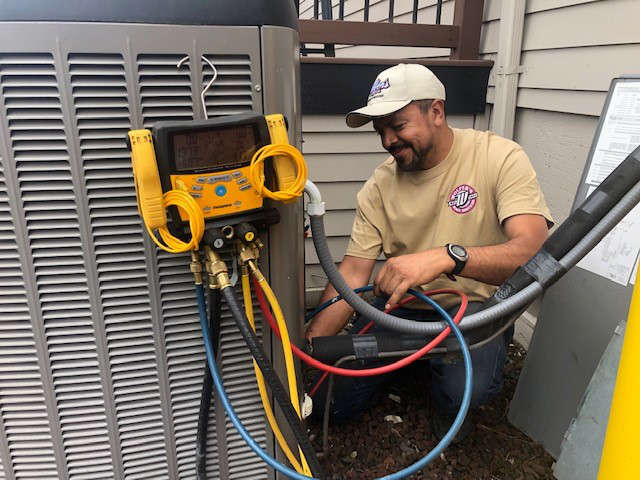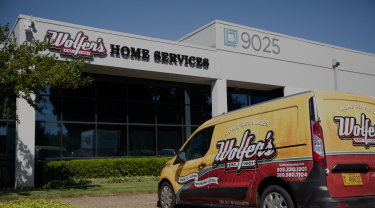
Are you in the market for a new Heating, Air Conditioning system but aren’t sure what it may end up costing you? We know that it can be overwhelming. Having an accurate cost in mind for an Heating, Air Conditioning replacement can help you budget and provide insight into your future investment.
Type of Heating, Air Conditioning System
One common factor that can drastically affect the cost of Heating, Air Conditioning replacement is the type of system you currently have.
- Central Air System – This is probably the most common Heating, Air Conditioning system that comes to mind for many of us and is the most common in households. If you have a larger residence, this system might be a good option because it allows you to customize the unit to meet the needs of your home. A Central Air System is made up of an outdoor unit that holds a compressor and a condenser, as well as an indoor unit that contains the evaporator coil for heating and an air handler for cooling.
- Mini Split System – Mini-split systems, or ductless systems, don’t require any ductwork and are placed in individual rooms that connect to an outdoor unit. The equipment costs for individual units can run at a higher cost. Depending on the size of your home and the number of individual units you want, the cost will vary.
- Hybrid System – Hybrid systems bring together two different fuel sources, such as a gas or oil furnace and an electric heat pump. They provide more efficient heating and cooling and are particularly common in homes that are located in warmer climates. When the temperature drops below 40 degrees, your heating costs can skyrocket as your heat pump struggles to warm your home.
Size of Your A/C Unit
The first step in getting a new air conditioner unit installed is determining what size you’ll need. Many homeowners initially think that the larger the unit, the quicker your system will cool down their home, but it is quite the opposite. If your system is too big for your home you will see a rise in your electric bills, inconsistent cooling, and higher humidity! On the other hand, if your system is too small for your home, it simply won’t have sufficient power to cool your home properly. The size of your unit will cause the cost to fluctuate, but it should not be a deciding factor, as choosing the proper size unit will save you money in the long run.
Seasonal Energy Efficiency Ratio (SEER)
The SEER of your system is also a highly influential factor in the cost of your system replacement, and this is entirely up to you to choose from. Today’s SEER typically range on a scale from 13 to 25, 25 being the most efficient, but also the most expensive. Heating, Air Conditioning systems with higher SEER will cost you more upfront but can typically even out in the savings on your monthly utility bill. To really see what you could be possibly saving by upgrading to a higher SEER system from the one you have now use this SEER Energy Savings Calculator.
These are just a few of the main factors that can influence the overall cost of the replacement of your old Heating, Air Conditioning system. There are still other factors that may arise and can fluctuate and affect the overall cost of replacing your system like labor, level of ductwork, and the size of your home but these key influencers should give you a ballpark amount to begin budgeting or preparing for. If you’re in the market for a new Heating, Air Conditioning system and are looking for an exact estimate, our Wolfer’s team is HAPPY to help! Call (503) 220-1901 or schedule online »






